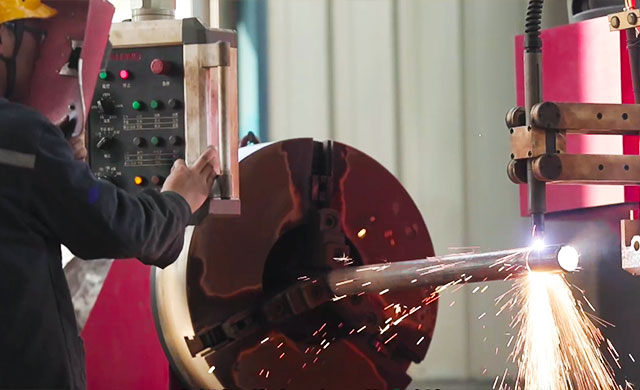
Dec . 01, 2024 00:29
Back to list
Understanding the Importance of Safety Valves in Natural Gas Systems
The Importance of Natural Gas Safety Valves in Ensuring Safety and Efficiency
Natural gas is one of the most widely used energy sources in residential, commercial, and industrial applications. Its efficiency and convenience make it a popular choice, but the inherent risks associated with its use cannot be overlooked. One of the critical components in natural gas systems that enhances safety and efficiency is the natural gas safety valve.
Understanding the Natural Gas Safety Valve
A natural gas safety valve is designed to protect against excessive pressure buildup within gas systems. It functions as a fail-safe mechanism, ensuring that if the pressure exceeds a pre-determined level, the valve opens to release gas safely and prevent potential hazards like explosions or leaks. Typically, these valves are installed in various points throughout a gas distribution system, including residential heating systems, industrial gas plants, and commercial kitchens.
The Functionality of Safety Valves
Safety valves operate through a simple yet effective mechanism. They are calibrated to open automatically when the internal pressure reaches a certain threshold, releasing gas to reduce pressure levels. This process is critical for maintaining the integrity of the system and safeguarding not only the equipment but also the occupants of the building or facility. Once the pressure normalizes, the valve closes automatically, ready to react to any future pressure surges.
Why Safety Valves Are Essential
1. Preventing Catastrophic Failures Without proper pressure management, natural gas systems can fail catastrophically. Over-pressurization can lead to ruptured pipes, resulting in gas leaks that pose severe risks of fires and explosions. Safety valves mitigate these risks by maintaining operational pressure within safe limits.
natural gas safety valve

2. Compliance with Regulations Many regions have stringent regulations governing natural gas systems. Regularly installed and maintained safety valves not only enhance safety but also ensure compliance with these regulations, thereby avoiding potential legal issues and fines.
3. Enhancing System Efficiency By preventing pressure anomalies, safety valves help maintain optimal operating conditions for gas systems. This efficiency can translate to cost savings for consumers as well as reduced maintenance needs for operators.
4. Emergency Preparedness Natural gas safety valves are vital for emergency preparedness. In the event of a malfunction or disaster, these valves provide a quick response to pressure build-up, helping to avert dangerous situations. This aspect is particularly crucial in commercial settings, such as restaurants and manufacturing facilities, where safety is paramount.
Maintenance and Inspection
To ensure the effective operation of natural gas safety valves, regular maintenance and inspection are essential. Operators should institute a routine check-up schedule to assess valve functionality, integrity, and proper calibration. Inspecting for rust, wear, or signs of corrosion can prevent issues from developing and extend the lifecycle of the valve.
Conclusion
In conclusion, natural gas safety valves are indispensable components of gas systems that provide an essential layer of safety and efficiency. Their ability to manage pressure and prevent potentially disastrous situations cannot be overstated. Whether in residential, commercial, or industrial applications, the presence of a functioning safety valve is crucial for protecting lives and property. As natural gas continues to be a primary energy source worldwide, the importance of such safety mechanisms will only grow, emphasizing the need for awareness, maintenance, and adherence to safety protocols. Investing in quality safety valves and their regular servicing is not just a regulatory requirement; it is a commitment to safety and responsibility in the management of natural gas resources.
Next:
Latest news
-
Safety Valve Spring-Loaded Design Overpressure ProtectionNewsJul.25,2025
-
Precision Voltage Regulator AC5 Accuracy Grade PerformanceNewsJul.25,2025
-
Natural Gas Pressure Regulating Skid Industrial Pipeline ApplicationsNewsJul.25,2025
-
Natural Gas Filter Stainless Steel Mesh Element DesignNewsJul.25,2025
-
Gas Pressure Regulator Valve Direct-Acting Spring-Loaded DesignNewsJul.25,2025
-
Decompression Equipment Multi-Stage Heat Exchange System DesignNewsJul.25,2025

